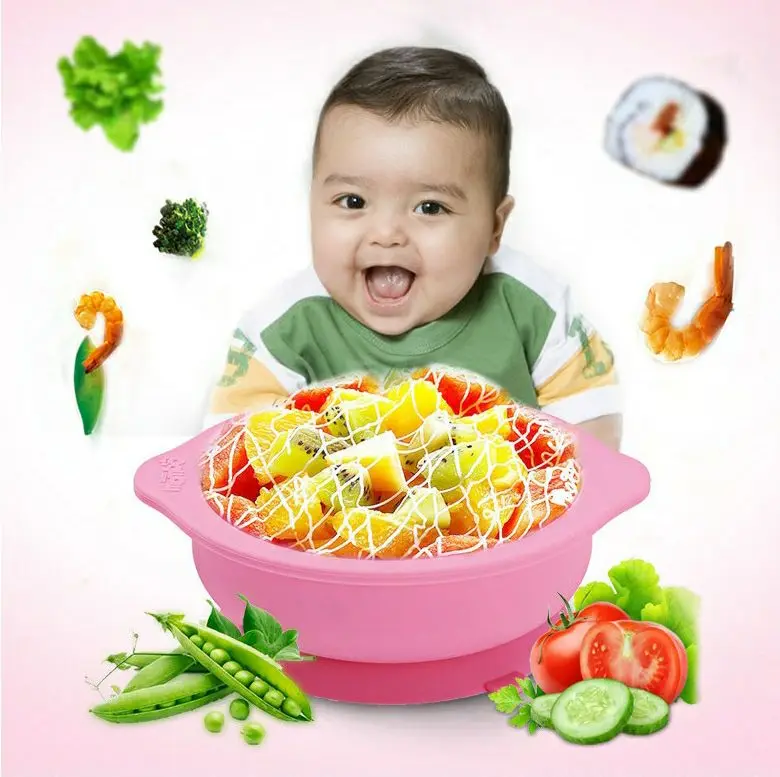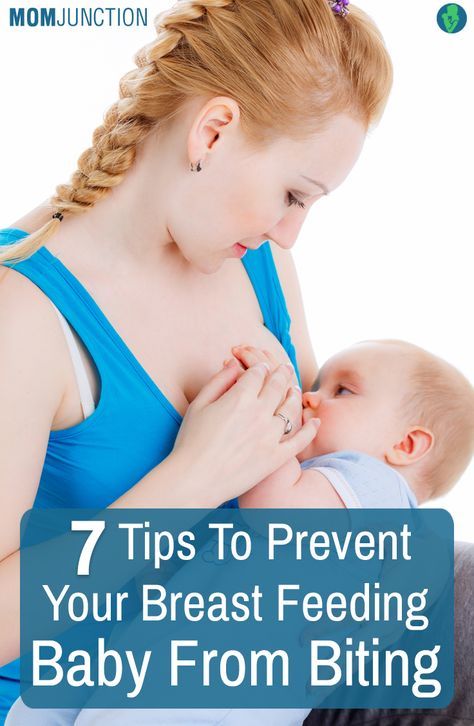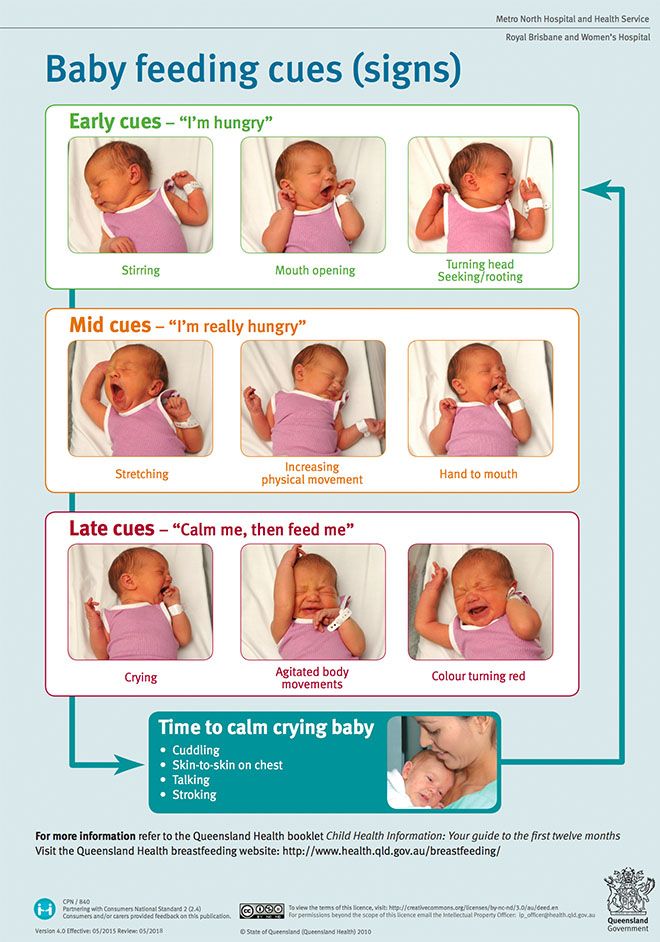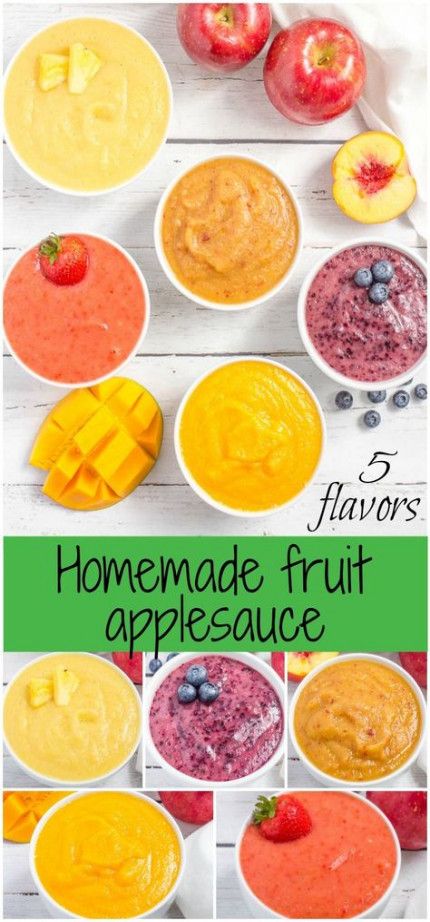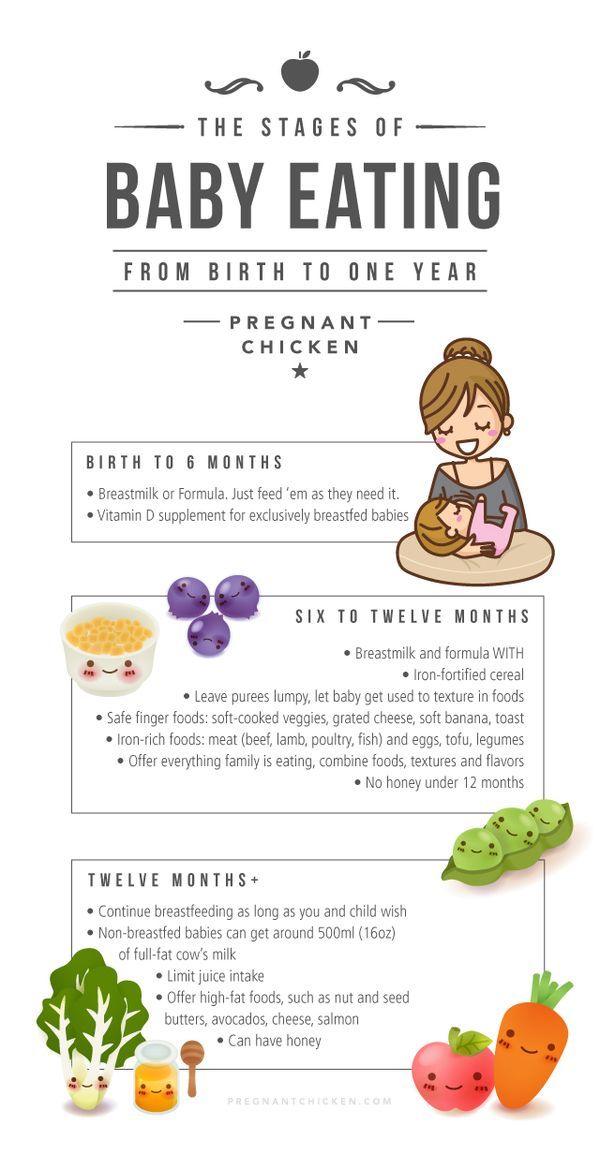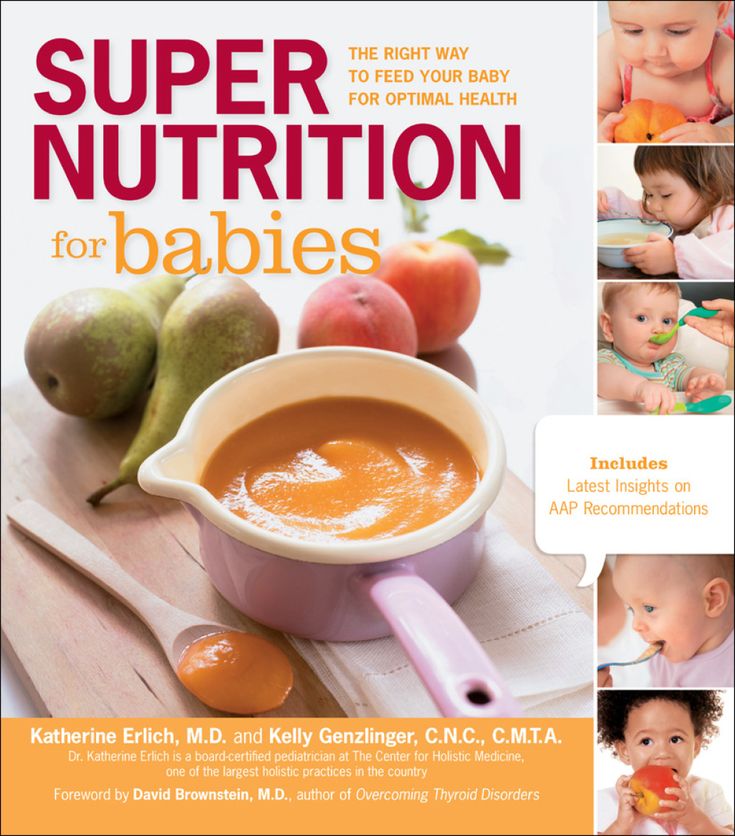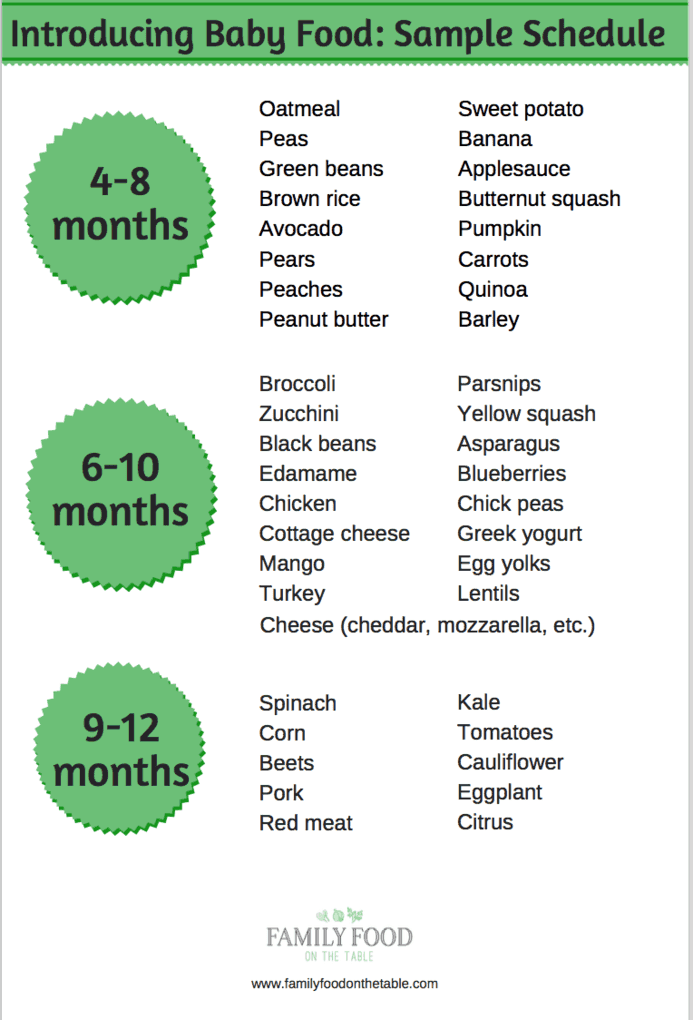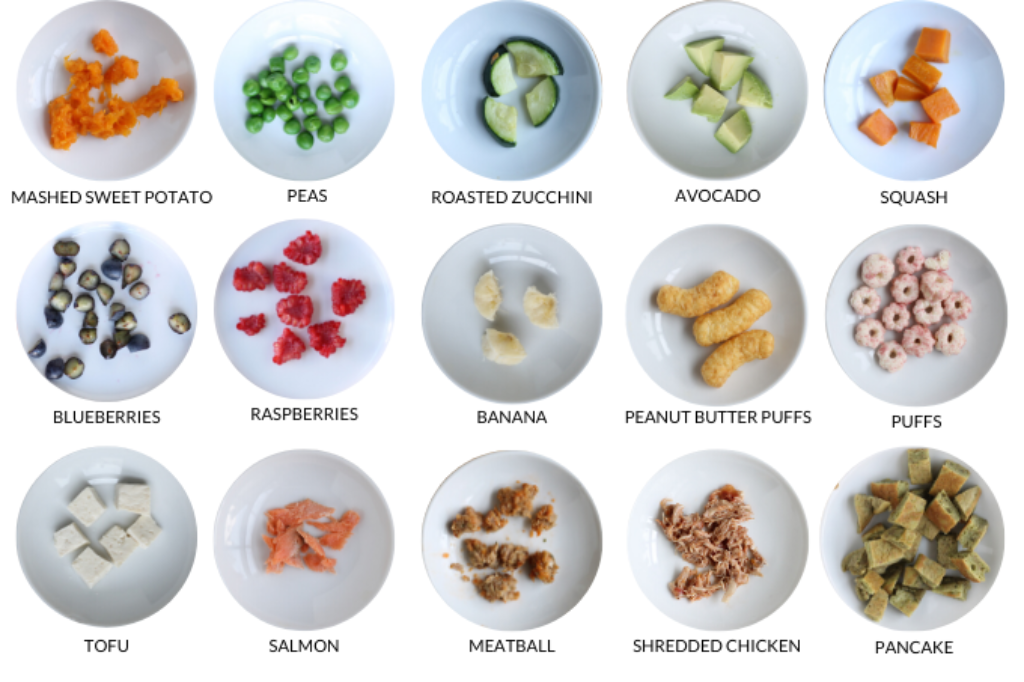Breastfeeding baby food allergy symptoms
Infant Allergies and Food Sensitivities
Human breast milk typically does not cause allergic reactions in breastfeeding infants, but mothers sometimes worry that their babies may be allergic to something that they themselves are eating and passing into their breast milk. In fact, only two or three out of every one hundred babies who are exclusively breastfed demonstrate an allergic reaction—and that’s most often to the cow’s milk in their mother’s diet. In this case, the infant may show signs of severe colic, abdominal discomfort, or a skin rash such as eczema or hives, or may react with vomiting, severe diarrhea (often with blood in the stool), or difficulty breathing that lasts up to several hours after breastfeeding.
If you note any of these symptoms, contact your pediatrician right away. While rare—especially among breastfed babies—milk allergies can be severe or fatal. Most babies eventually outgrow their allergy to cow’s milk, although food allergies to other substances may be lifelong.
Breastfeeding exclusively for the first six months of life has been shown to significantly lessen the risk and severity of food allergies in families with a strong history of them. Exclusive breastfeeding or breastfeeding in combination with partially or extensively hydrolyzed infant formula also reduces the risk for eczema, a condition of excessively dry and easily irritated skin.
So far, there is no evidence that avoiding certain foods while breastfeeding can help prevent your child from developing allergies or asthma. The exception to that might be eczema: some studies suggest that avoiding certain foods may reduce your baby’s risk for developing eczema. Still, if your family has experienced severe food allergies, you might consider limiting your intake of milk and dairy products, fish, eggs, peanuts, and other nuts during pregnancy and while breastfeeding. Monitor your baby carefully for skin rashes, breathing problems, unusual stools, or other allergic symptoms, and be sure to tell your pediatrician about your family’s medical history.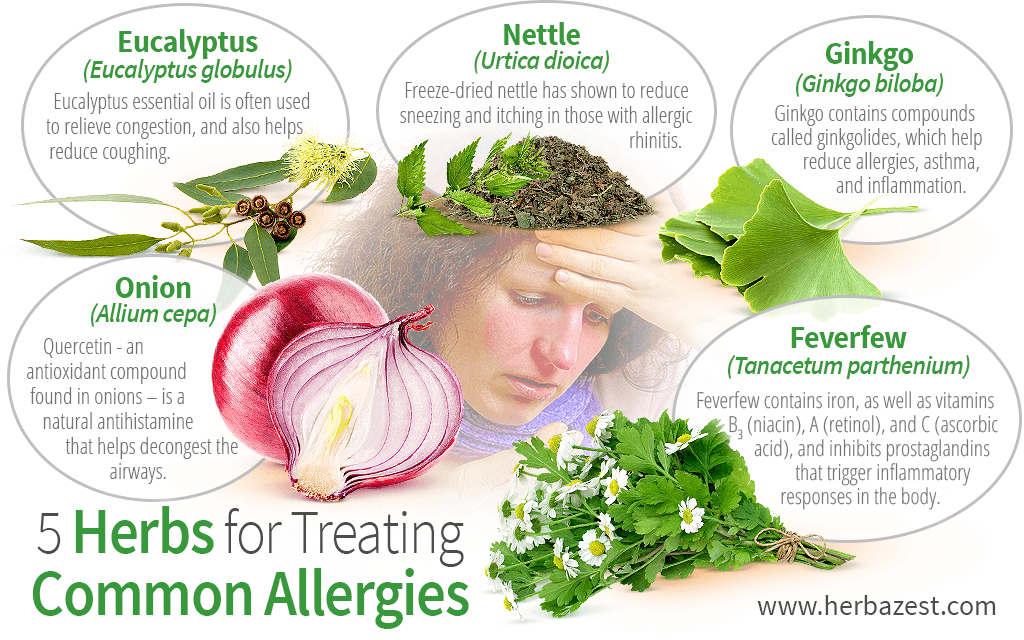
A few mothers notice minor reactions to other foods in their diet. Some babies cry, fuss, or even nurse more often after their mother has eaten spicy or "gassy" foods (such as cabbage). These reactions differ from allergies in that they cause less-serious symptoms (no rashes or abnormal breathing) and almost always last less than twenty-four hours.
If your baby reacts negatively every time you eat a certain type of food and you find this troubling, you can just avoid that particular food temporarily. If these symptoms continue on a daily basis and last for long periods, they may indicate colic rather than food sensitivity. Talk with your pediatrician about this possibility, if eliminating various foods has no effect on your child’s symptoms.
- Last Updated
- 11/2/2009
- Source
- New Mother's Guide to Breastfeeding, 2nd Edition (Copyright © 2011 American Academy of Pediatrics)
The information contained on this Web site should not be used as a substitute for the medical care and advice of your pediatrician.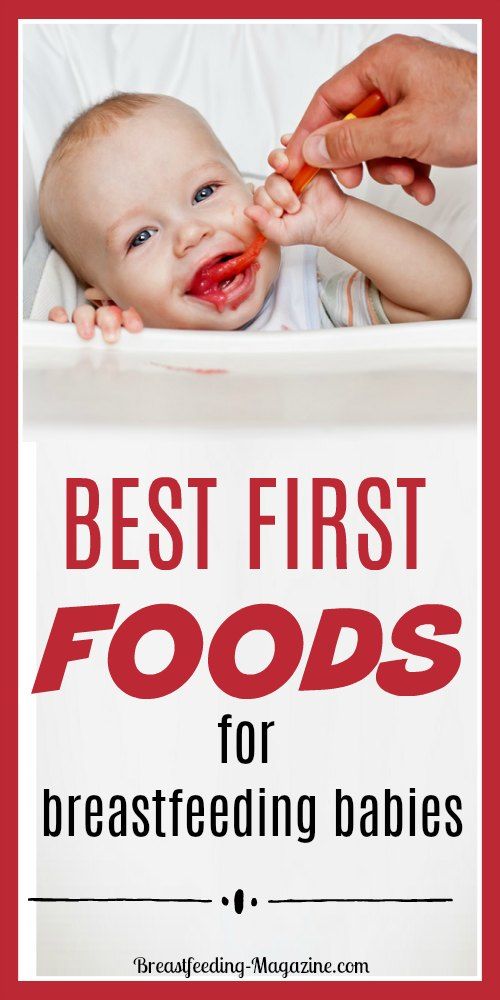 There may be variations in treatment that your pediatrician may recommend based on individual facts and circumstances.
There may be variations in treatment that your pediatrician may recommend based on individual facts and circumstances.
Is your Baby Reacting to Breastmilk?
Read time: 8 minutes
What should I know about an allergy or intolerance in my breastfed baby?Learn the difference between an allergy and a food intolerance or sensitivity
Know the signs and symptoms of food allergy or intolerance in breastfed infants
Learn which foods are the most common allergens or culprits in food intolerances
How to manage your food intake to help alleviate your baby’s symptoms
Breastmilk is incredible – it offers a complete form of nutrition for infants, and offers a range of benefits for health, growth, immunity, and development.1 The nutrients in your breastmilk come directly from what’s circulating in your blood, meaning that the nutrients and compounds you absorb from the food you eat are then passed along to your baby.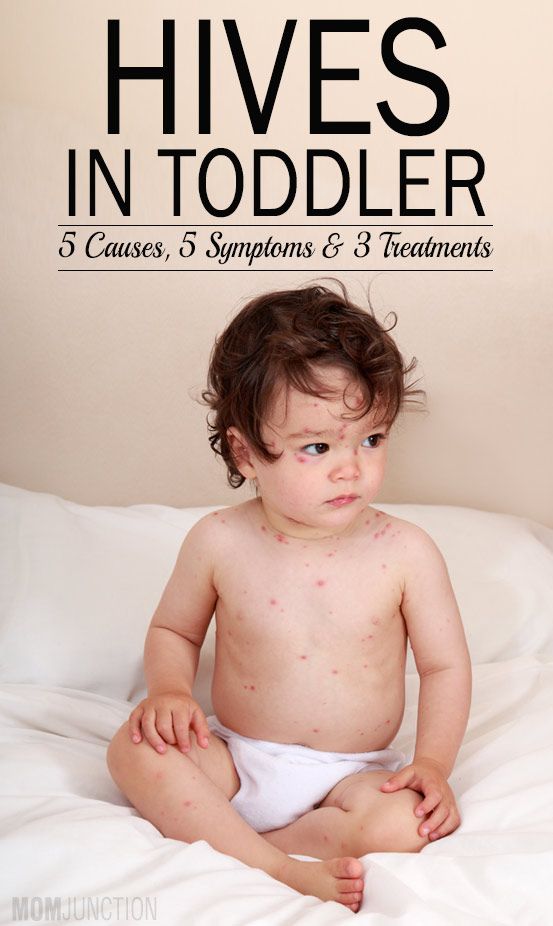
While being truly allergic or reacting to something in mom’s milk is rare in babies, a small percentage of mothers do notice a difference in their babies’ symptoms or behavior after eating certain foods.
What’s the difference between an allergy and an intolerance or sensitivity?Sometimes these terms are used interchangeably, but an allergy and an intolerance/ sensitivity are very different. According to the American Academy of Allergy Asthma and Immunology (AAAI), an allergy is when the immune system reacts to a food, whereas an intolerance happens during digestion.2
Allergies generally have more severe symptoms, often causing skin reactions or difficulty breathing. Food intolerances occur when we have difficulty digesting a food, which often result in gastro-intestinal symptoms.
With an allergy, the culprit food often needs to be taken out of the diet completely to avoid symptoms.
Food intolerances however may allow for a small amount of the offending food to be eaten without any reactions.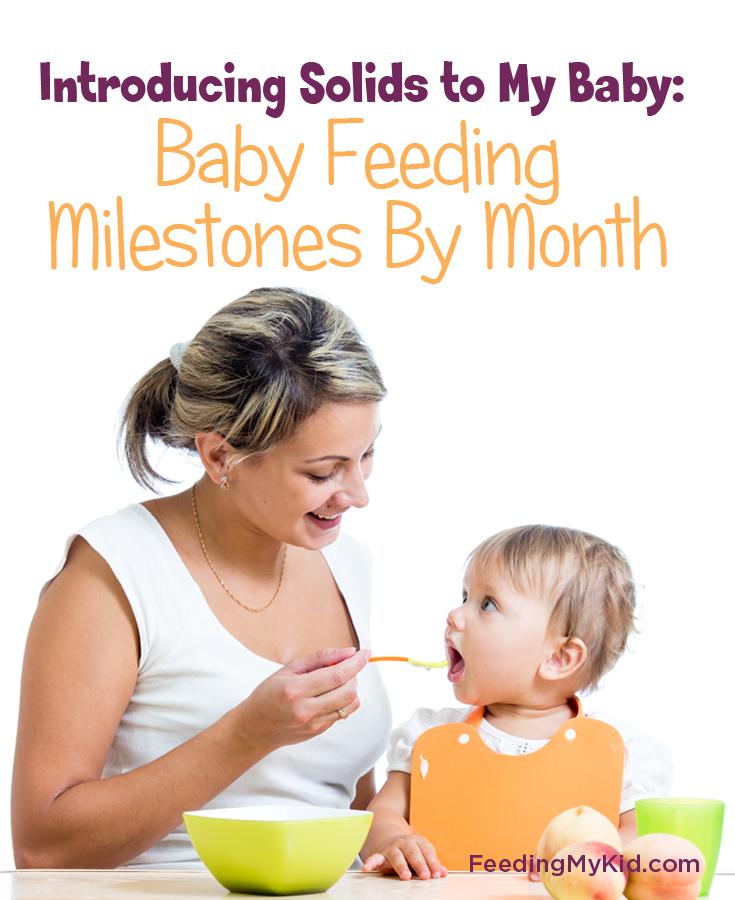 This is the ‘threshold’ amount: the lowest amount of the food you can eat without having symptoms.
This is the ‘threshold’ amount: the lowest amount of the food you can eat without having symptoms.
Read more: Am I Able to Reduce the Risk of Allergies for my Baby while I’m Pregnant and Breastfeeding?
Which foods might cause an allergic reaction?In general, food allergens include cow’s milk, soy, eggs, peanuts, wheat, tree nuts, fish, and shellfish.3
In children, the most common allergens are peanuts, milk, tree nuts, and shellfish.4,5
What are the symptoms of a food allergy in babies?Food allergies affect about 7.6% of children in the United States.4
The most common symptoms of an allergy in breastfed infants are eczema (a scaly, red skin rash) and bloody stool (with no other signs of illness). You might also see hives, wheezing or other breathing problems, nasal congestion, swelling of a body part (tongue, lips, face), throat tightness, pale skin, vomiting or diarrhea.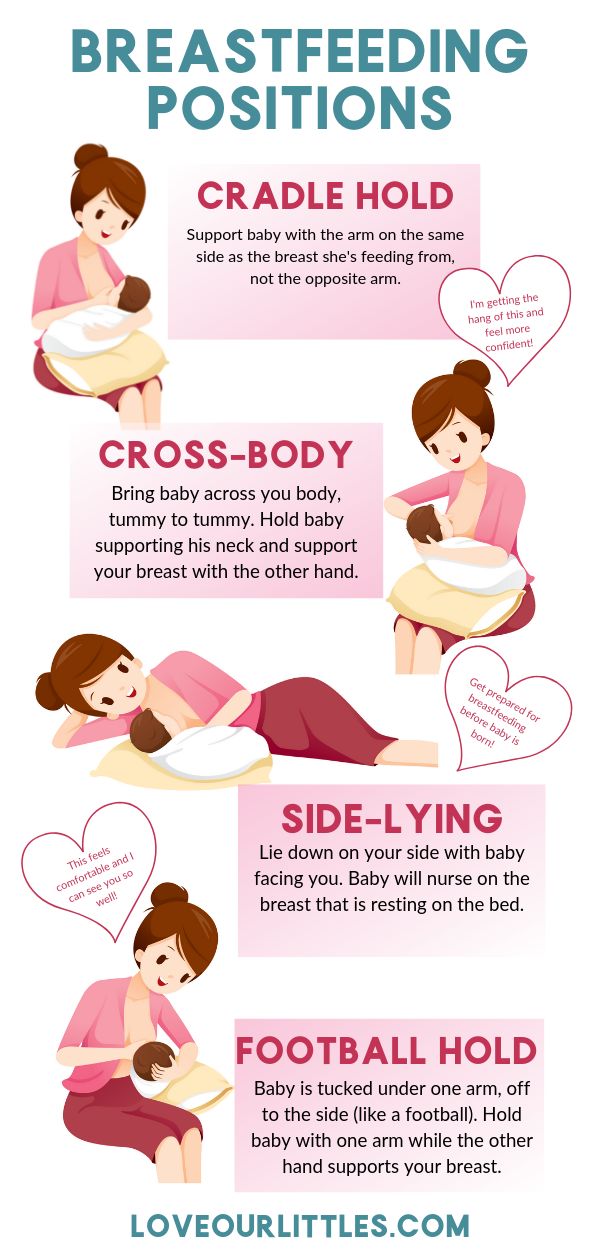 6
6
If you notice any of these symptoms, be sure to call baby’s pediatrician right away. While you can likely manage most food allergies in your breastfed infant by changing your diet, there are some cases in which using a hypoallergenic formula may be required.
Learn about: How Do I Manage Gas in My Breastfed Baby?
Which foods might cause a food intolerance or sensitivity reaction?You may have heard that eating foods that make you gassy will also cause gastrointestinal distress for your baby, or that eating foods like onion, garlic and cruciferous vegetables will cause colic. While there is no significant data to support such an association, there are some mothers who do notice certain foods make their babies fussier than usual. This may be a food intolerance or sensitivity.
There is a much wider variety of foods that may trigger a reaction when it comes to food intolerances; but it’s important to note that food sensitivities in babies are much less common than food allergies.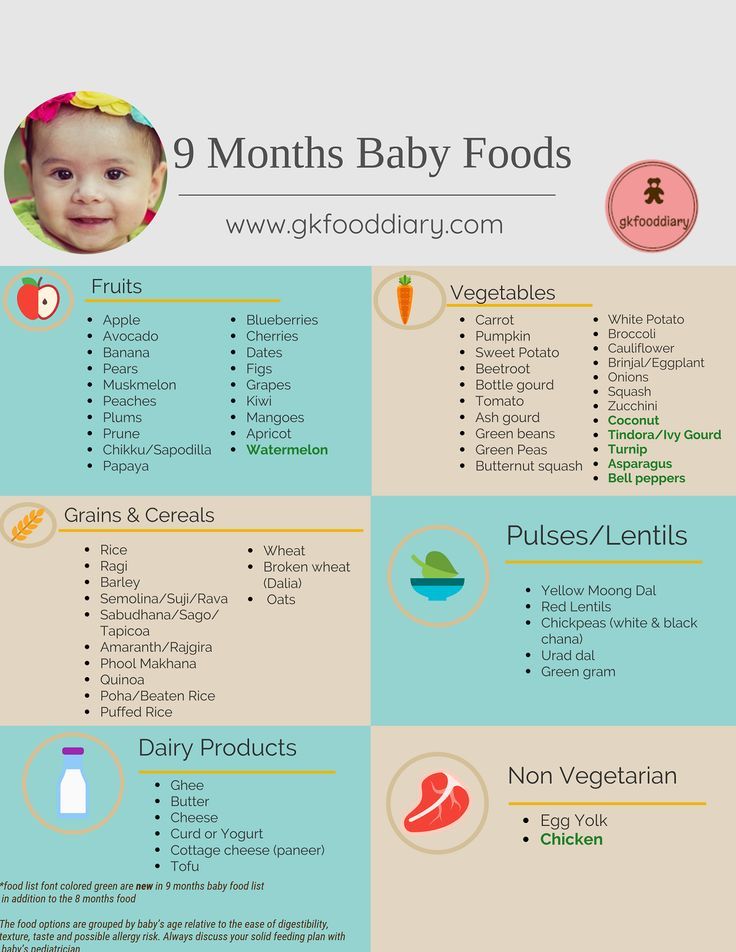
Foods that may cause reactions include: Fructose, lactose and other FODMAPs (easily fermented carbohydrates found in a variety of foods), wheat, histamine (often found in processed meats, cheeses, and some produce), and food additives.7
What are the symptoms of a food intolerance in babies?The most common symptom of a food sensitivity in babies is a change in their bowel habits. Extra gas, bloating, diarrhea or constipation, fussy after eating, mucous in the stool, or crying excessively may indicated baby is not doing well with a food you’re eating.
Note that if your little one has excessive crying that continues on a daily basis and lasts for long periods, that may indicate colic rather than food sensitivity.8 Talk with your pediatrician about this possibility.
Read more: How Can I Manage My Baby's Colic?
What can I do if my baby is reacting to something in my diet?The ultimate goal is figuring out which food is affecting your baby.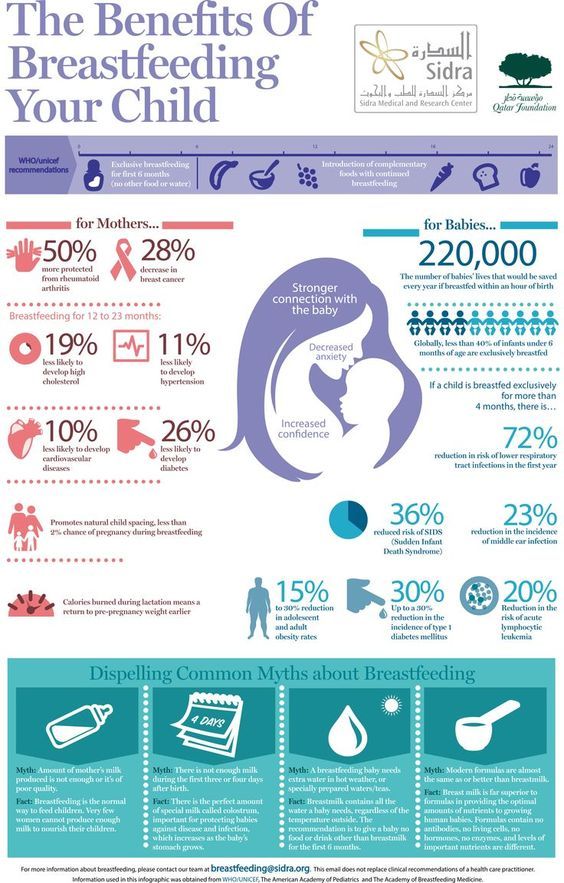 An elimination diet can help identify which food may be causing the allergy or food sensitivity.9 This means removing possible allergens from your diet for 2 to 3 weeks each while you continue breastfeeding.
An elimination diet can help identify which food may be causing the allergy or food sensitivity.9 This means removing possible allergens from your diet for 2 to 3 weeks each while you continue breastfeeding.
If you plan on trying an elimination diet, especially a multi-food elimination, be sure to work with a registered dietitian nutritionist. This will help ensure you are still getting all the nutrition you and your baby need as well as help navigate hidden sources of allergens. Foods like milk, soy, and corn can hide in all sorts of pesky places.
It’s important to add a food back into your diet if no symptoms in your baby improve within a few weeks of eliminating it. If your baby’s symptoms has not improved, it is likely that the food is not the culprit.
Our Happy Baby Experts are registered dietitian nutritionists and infant feeding specialists, they can help you meet your breastfeeding goals while keeping both you and baby happy and healthy.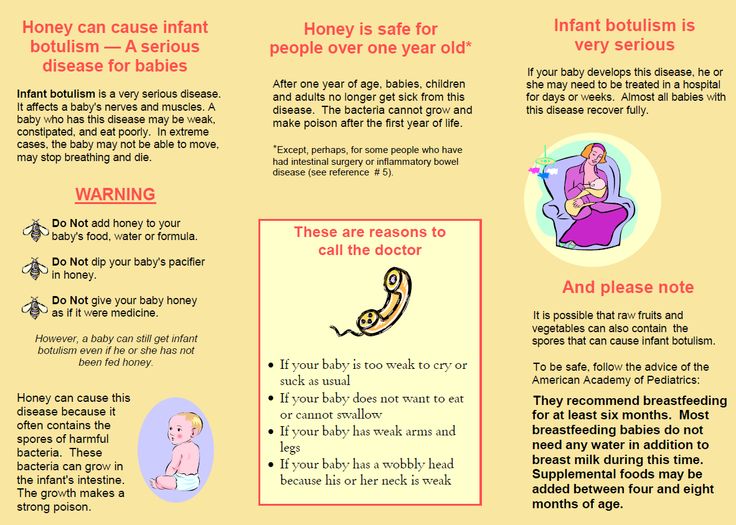 Chat with them now!
Chat with them now!
Trying to figure out what to eat while also taking out all allergens? Here are some ideas: Meal Plan for Allergen Free Eating while Breastfeeding
Does breastfeeding help protect against allergies?While more research is needed, some studies have indicated that breastfeeding exclusively for at least four months may help to reduce the risk and severity of food allergies, even in families with a history of them.11,12
So if your little one does show an intolerance or allergy early, know that it may resolve on its own before they turn one and that continued breastfeeding may help to safeguard against allergies later on.
What should I do if baby is reacting to my breastmilk?Contact your infant's pediatricianBring your baby in for a checkup. You’ll want to rule out any other causes for her symptoms, check baby’s growth and weight gain, and make sure baby is not losing excessive blood if your little one experiencing bloody stool.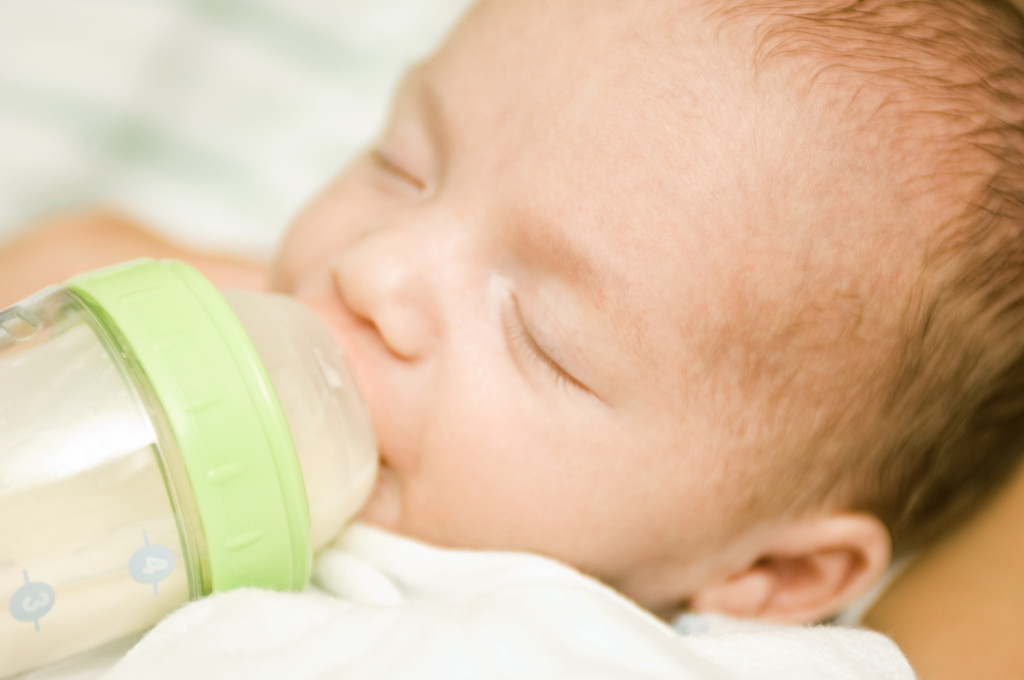 Your doctor can also discuss the possibility of confirming the presence of an allergy with a skin prick test.
Your doctor can also discuss the possibility of confirming the presence of an allergy with a skin prick test.
If your child is diagnosed with a food allergy, remember to ask about reintroducing the food later. Most kids will grow out of food allergies, sometimes by their first birthday.
Keep a food and symptom journalWe know it’s hard to find time to eat in those first few months, let alone write down what made it into your mouth, but tracking your intake alongside your baby’s symptoms is a good way to shed light on any possible reactions.
Just remember that foods we eat may remain in our bodies for long periods of time. So while a journal can be helpful to pinpoint the onset of symptoms when you first eat the offending food, know that your baby’s symptoms can persist for several days, even if you don’t eat that particular food again.
Consider eliminating specific foodsIf you notice an adverse reaction in your baby after you eat certain foods, try removing that food from your diet and watch for improvement.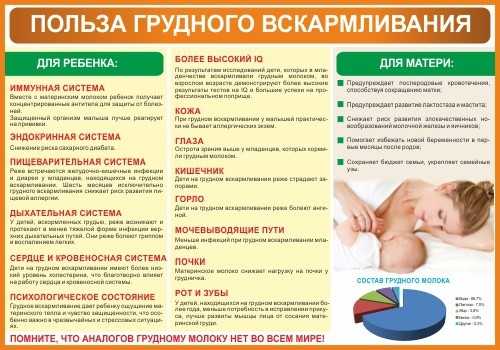
You may want to start with cow’s milk, as the most frequent allergic reaction in breastfed babies is a milk protein allergy.5 Remember, it takes time for your body to be completely free of the offending food, so make sure you’ve removed all sources of the food for at least two weeks.
Always speak with your health care provider before attempting to eliminate foods from your diet. Work closely with a registered dietitian nutritionists during this process to ensure you maintain a balanced diet and are getting all the nutrients you and your baby need.
Be sure to add foods back in when their elimination does not seem to impact your baby’s symptoms.
Seek supportChanging your diet can be hard. Finding a registered dietitian nutritionist who can help make adjustments to your diet will help take some stress out of this process. Additionally, may lactation consultants are familiar with helping make these adjustments as well and also ensuring baby is getting what they need.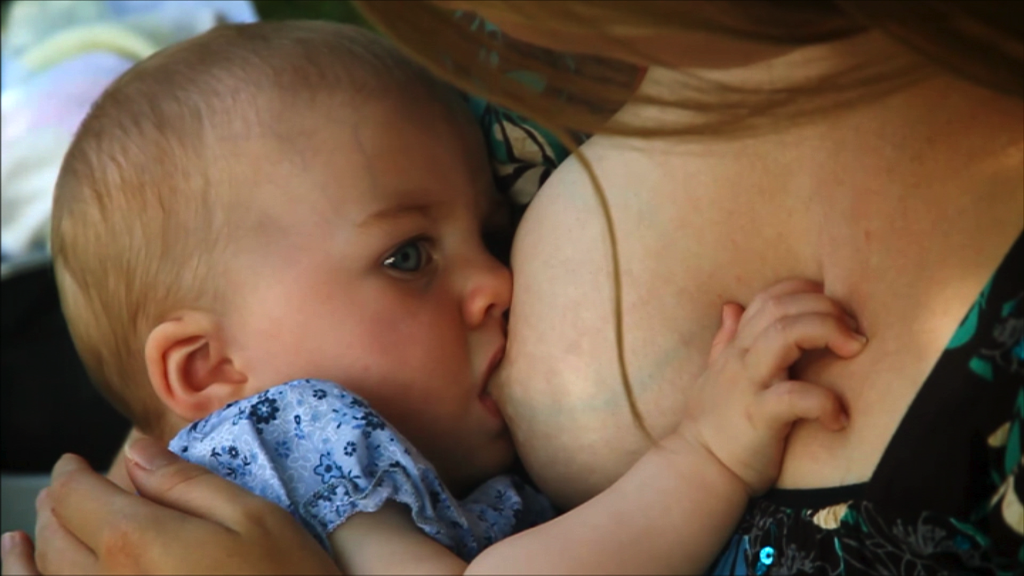
We know parenting often means sleepless nights, stressful days, and countless questions and confusion, and we want to support you in your feeding journey and beyond.
Our Happy Baby Experts are a team of lactation consultants and registered dietitian nutritionist certified in infant and maternal nutrition – and they’re all moms, too, which means they’ve been there and seen that. They’re here to help on our free, live chat platform Monday through Friday, from 8am–6pm (ET). Chat Now!
Read more about the experts that help write our content!
For more on this topic, check out the following articles:How to Deal with Nursing Strikes while Breastfeeding
How much Should I Eat while Breastfeeding?
How do I Manage Gas in my Breastfeed Baby?
Which Foods Should You Avoid While Breastfeeding?
How to understand that a baby has a food allergy
Kiseleva Elena Sergeevna
Candidate of Medical Sciences, Scientific Advisor MAMAKO ®
The expansion of the diet of an infant occurs due to the fact that the baby tries new foods during his first year of life.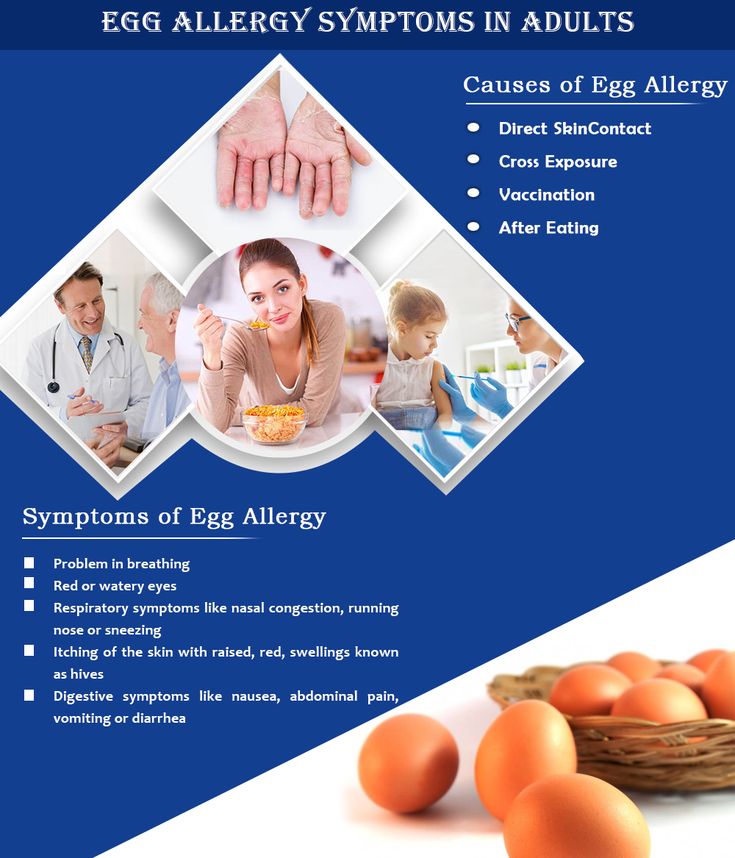 Many mothers are concerned about the prevalence of food allergies in children. Undoubtedly, new foods - and these can be mixtures and complementary foods - must be introduced with caution so as not to provoke allergies. We tell you how to understand that a child has a food allergy, how not to confuse it with reactions that look like allergies, but can develop due to other problems, such as food intolerance, and how to prevent or reduce allergies with the help of special therapeutic nutrition .
Many mothers are concerned about the prevalence of food allergies in children. Undoubtedly, new foods - and these can be mixtures and complementary foods - must be introduced with caution so as not to provoke allergies. We tell you how to understand that a child has a food allergy, how not to confuse it with reactions that look like allergies, but can develop due to other problems, such as food intolerance, and how to prevent or reduce allergies with the help of special therapeutic nutrition .
What is the cause of allergies in infancy?
Food allergy refers to the process by which the body "does not recognize" the proteins contained in food due to a malfunction of the immune system. At birth, a child's immune system and gastrointestinal tract are immature, so infants are more likely to develop an allergic reaction. If close relatives of the newborn suffer from allergic diseases, experts talk about a genetic predisposition to allergies.
Individual hypersensitivity (hypersensitivity) may be to various nutritional options necessary for the growth and development of the baby during the first year (milk and dairy products, various types of cereals, vegetable, meat purees).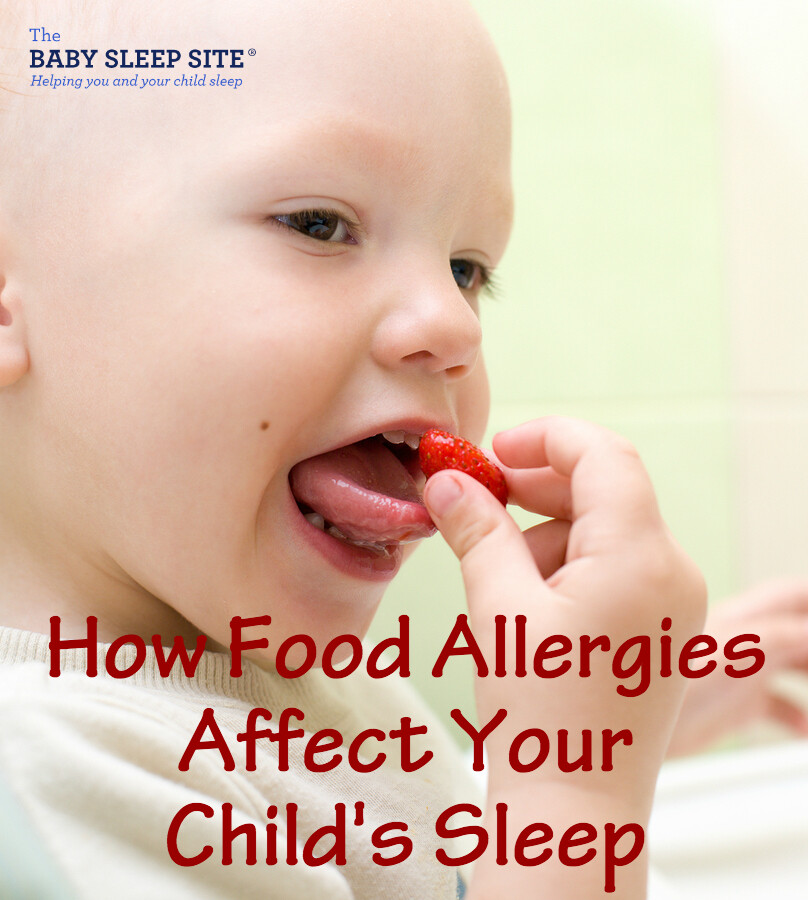 But this does not mean that, having matured, the child will not be able to endure them.
But this does not mean that, having matured, the child will not be able to endure them.
Cow's milk proteins are the most significant allergenic component in the nutrition of children in the first year of life.
Goat milk proteins are closer in composition to breast milk proteins, they are easier and faster to digest. Therefore, when choosing an infant formula, you should pay attention to mixtures made on the basis of goat's milk.
However, in cases of confirmed allergy to cow's milk proteins, goat milk should also be excluded due to possible cross-allergy.
How does food allergy manifest itself in children?
It is important for parents to know that food allergies are immune-related, their manifestations are very diverse and at the same time similar to signs of other childhood illnesses in infancy. This can make diagnosis difficult. In order to make the correct diagnosis, doctors take into account age, complaints, localization of symptoms, severity and form of the disease.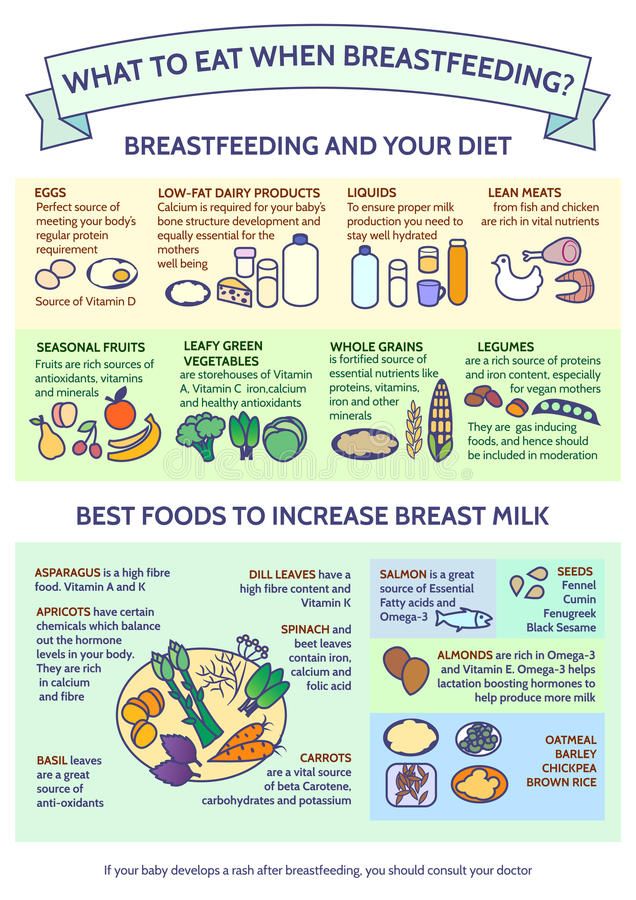
Food allergy in a child: symptoms
Children from birth to the age of one usually have a skin form of food allergy. Redness of the cheeks, rashes on the arms, legs, skin changes in the elbow and knee folds can be temporary - with age, most children "outgrow" infantile allergic reactions. However, in some babies, the symptoms of food allergies persist and are later replaced by manifestations of other allergic diseases.
What can be confused with a food allergy?
In infants, food allergies are often confused with food intolerances, when the body lacks the enzymes that break down certain food components. For example, lactose intolerance in newborns (lactose is the main carbohydrate in breast milk, a component of milk formulas) is caused by a deficiency of the lactase enzyme, which begins to be produced in the right amount at the age of about 4-6 months. Lactase deficiency is usually manifested by symptoms of indigestion: bloating, frothy stools with a characteristic sour smell, a lot of gases that cause pain and cramps in the intestines.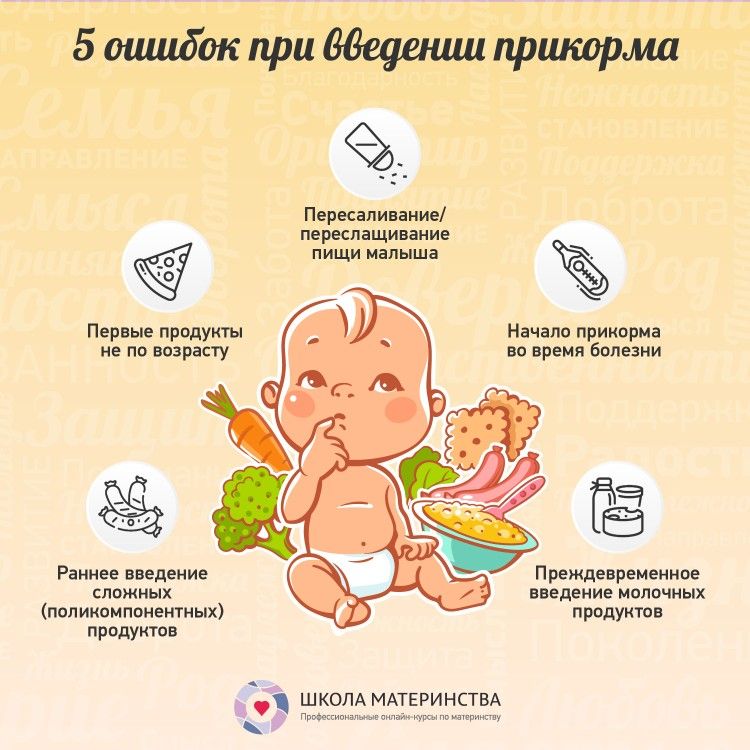
In addition, you should be attentive to other skin diseases. So, acne in newborns, diaper dermatitis are not associated with a reaction to food. In these cases, proper skin care under medical supervision is needed. However, food allergies can exacerbate skin rashes.
Allergies from the stomach or intestines can easily be mistaken for food poisoning or intestinal infection - but the latter begin suddenly: children have a sharp rise in temperature against the background of profuse vomiting and acute diarrhea.
How to treat food allergies in children?
The primary care physician for children is a pediatrician, and when a baby develops a skin rash, the best solution is to get to him as soon as possible. The pediatrician will listen to the complaints of the parents, examine the skin of the baby. After identifying the cause of the rashes and making a diagnosis, he will talk about how to properly treat food allergies in children. If other specialists are needed to solve the problem, the pediatrician will refer you to a pediatric allergist, gastroenterologist and dermatologist for a consultation. All drugs for external and internal use are prescribed by a doctor and should be used by parents under strict medical supervision.
All drugs for external and internal use are prescribed by a doctor and should be used by parents under strict medical supervision.
If the baby is breastfed, the nursing mother is given a dairy-free diet. You will have to exclude cow's milk, yogurt, sour cream, cottage cheese, kefir, butter, that is, all milk products, as well as veal and beef from your diet. It is not necessary to refuse breastfeeding and transfer the child to medical nutrition if noticeable improvements appear after a while. If the baby does not have any manifestations of allergies, then the mother does not need a diet.
When artificially feeding a child with a confirmed allergy , the usual milk formula is replaced with a special mixture based on hydrolyzed milk proteins, which has pronounced healing properties. The protein in such mixtures is split into small fragments, which reduces or eliminates the allergenic properties of food. Such a mixture tastes bitter and sometimes the child does not like it, but with its correct introduction, whims and refusal can be avoided.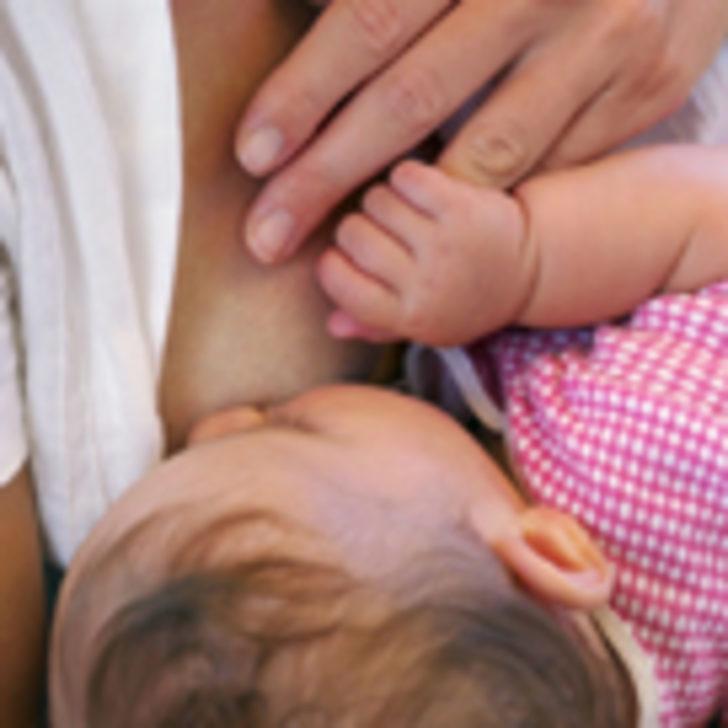 The doctor prescribes the therapeutic mixture - with an independent choice, the mother will not take into account all the features of children's health.
The doctor prescribes the therapeutic mixture - with an independent choice, the mother will not take into account all the features of children's health.
For healthy formula-fed babies, goat milk-based baby food can be recommended: MAMAKO ® Premium infant formula.
MAMAKO ® Premium mixtures are based on adapted goat's milk, which, thanks to modern technologies, retains all the most valuable components of this healthy product for babies.
MAMAKO ® Premium infant formula contains:
- Goat milk proteins, more similar in composition to the components of breast milk. They are easily and gently digested in the stomach of newborns like breast milk proteins.
- Prebiotics oligosaccharides 2'-FL identical to human milk oligosaccharides and GOS which, when combined with the probiotic, B. LACTIS bifidobacteria, provide digestive comfort and support immunity.
- IQ-Complex - lutein and polyunsaturated fatty acids DHA and ARA, necessary for the brain and vision.
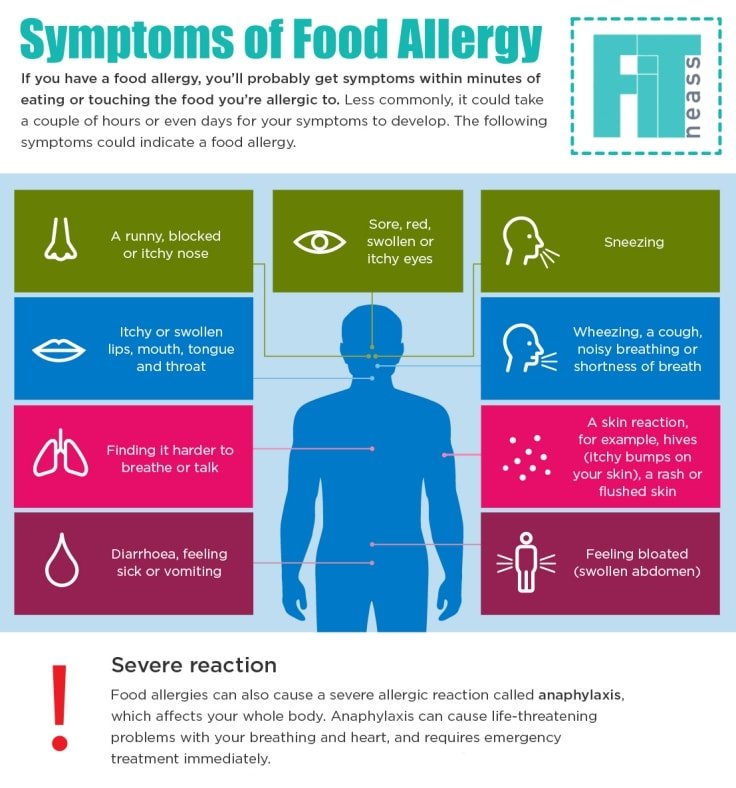
Diet therapy during the complementary feeding period is maintained. If you are allergic to cow's milk proteins, dairy products are excluded from the diet. Children's cereals on the water, vegetable, meat and fruit purees are added to the diet gradually, according to the schedule recommended by the child's doctor. New complementary foods are tried without exacerbation of the disease, with the obligatory keeping of a food diary and monitoring of adverse reactions.
How quickly do food allergies resolve in newborns?
With food allergies, it is important to stop the intake of the causative allergen and eliminate it completely from the body. This takes time. How quickly improvement will come after the elimination of the allergen and what the prognosis will be depends on the severity and form of the disease in a particular baby, compliance with nutritional recommendations.
When breastfeeding or formula feeding, the skin is able to clear and the stool returns to normal after about 1. 5-2 months of the mother's diet or formula treatment.
5-2 months of the mother's diet or formula treatment.
During complementary feeding, the re-introduction of the "culprit" of the allergy should be postponed for a longer period.
Allergies may be completely gone by 2-3 years of age, but sometimes persist until school age.
Infants are naturally prone to allergic reactions. It's important to be prepared for any of these, but limiting your healthy baby to foods and avoiding allergens excessively just "for safety reasons" should not be. If a child has a predisposition to food allergies, it can manifest itself at any age when breastfeeding, mixtures, complementary foods. It is important not to miss the first symptoms and consult your doctor in time for the selection of nutrition.
* Breast milk is the best food for babies. WHO recommends exclusive breastfeeding for the first 6 months of a child's life and continued breastfeeding after complementary foods are introduced until the age of 2 years. Before introducing new products into the baby's diet, you should consult with a specialist.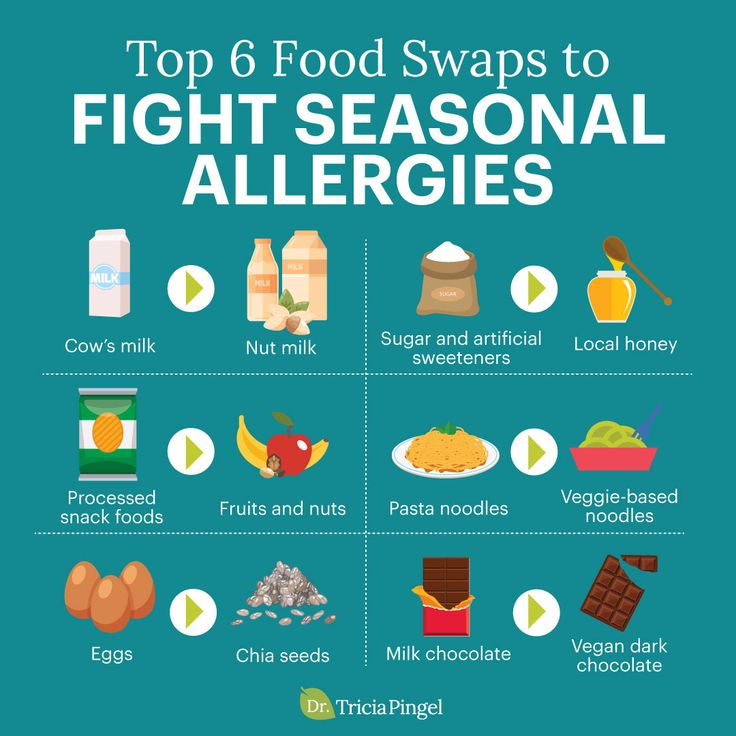 The material is for informational purposes and cannot replace the advice of a healthcare professional. For feeding children from birth. The product is certified.
The material is for informational purposes and cannot replace the advice of a healthcare professional. For feeding children from birth. The product is certified.
Information sources
1.
Baranov A. A., Namazova-Baranova L. S., Khaitov R. M. et al. Modern principles of managing children with food allergies. — Pediatric pharmacology. - 2021. - T. 18. - No. 3. - S. 245-263.
#allergy #Tips for mom #breast-feeding #baby formula #lure
See also
Food diary for a child with allergies
#Food #allergy #allergy 12 plus
Shalunova Anastasia Ivanovna
member of the Russian Union of Nutritionists, Nutritionists and Food Industry Specialists
Features of complementary foods for infants with allergies
#Food #allergy #allergy 7-12
Shcherbakova Alla Anatolyevna
Candidate of Medical Sciences, pediatrician, gastroenterologist
Food allergy in children: how is it diagnosed?
#video #advice mom #baby formula
Kholodova Irina Nikolaevna
MD, professor, pediatrician, gastroenterologist
See all
View all
Food allergy in children: how is it diagnosed?
# video # tips for mom # infant formula
Kholodova Irina Nikolaevna
doctor of medical sciences, professor, pediatrician, gastroenterologist
See all
Features of complementary foods for infants with allergies
# Lure # allergy # allergies # allergy 7-12
Shcherbakova Alla Anatolyevna
Candidate of Medical Sciences, pediatrician, gastroenterologist
See all
Food diary of a child with allergies
# Lure # allergy # allergies # allergy 12 plus
Shalunova Anastasia Ivanovna
member of the Russian Union of Nutritionists, Nutritionists and Food Industry Specialists
See all
View all
causes, treatment, diet — Dobrobut Clinic
Home
Medical Library Dobrobut
Publication date: 2020-03-09
How allergy manifests itself in infants
Allergy is a pathological reaction of the body to various foreign substances.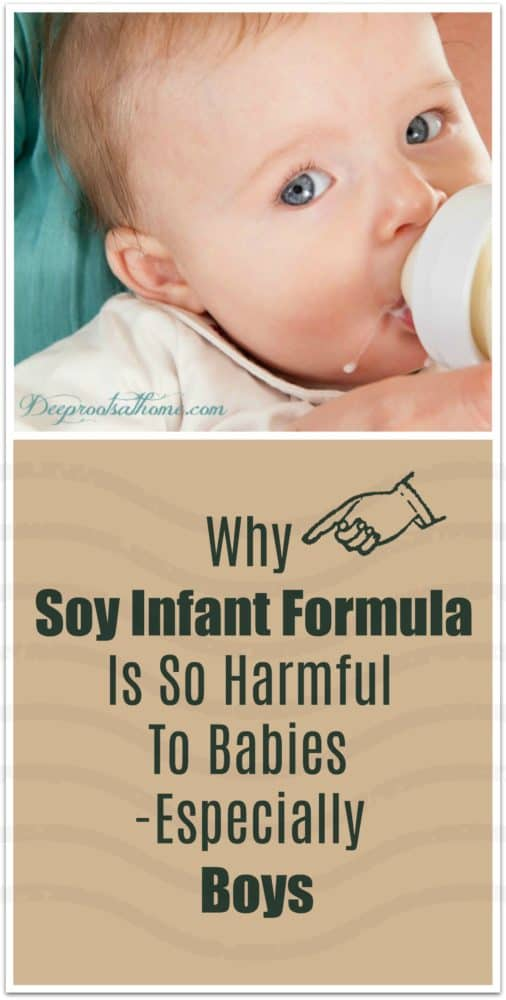 Clinically, such reactions are expressed in the form of allergic diseases: atopic dermatitis, food allergies, urticaria, allergic rhinitis, Quincke's edema, bronchial asthma.
Clinically, such reactions are expressed in the form of allergic diseases: atopic dermatitis, food allergies, urticaria, allergic rhinitis, Quincke's edema, bronchial asthma.
Allergic diseases (AD) have long turned into a "disease of civilization". The increase in the number of allergy sufferers is most noticeable among children of the first year of life. One of the causes of allergies in an infant is the early rejection of the mother's breast or the lack of breastfeeding. In this case, the baby does not receive the necessary protective elements with mother's milk. You will learn about other causes of allergic diseases, about how to treat allergies in an infant, from our article.
Causes of allergies in infants
The direct cause of allergies is the child's contact with an allergen - a foreign substrate.
One of the factors contributing to the development of allergic diseases is hereditary predisposition. If one of the parents has an allergy, then the probability of its occurrence in a child is 60-70%, if both parents are ill, then the probability of developing AZ increases to 90%. The early development of allergic diseases in children is also facilitated by the unreasonable use of antibacterial drugs, especially in the first months of life. Bad habits of the mother (alcohol, drugs, smoking) increase the risk of developing allergic diseases in the child. The question of whether the diet of a pregnant woman affects the development of AD in a child is still under discussion.
The early development of allergic diseases in children is also facilitated by the unreasonable use of antibacterial drugs, especially in the first months of life. Bad habits of the mother (alcohol, drugs, smoking) increase the risk of developing allergic diseases in the child. The question of whether the diet of a pregnant woman affects the development of AD in a child is still under discussion.
How do babies develop allergies? Its main symptoms are:
- peeling of the skin,
- various rashes,
- diaper rash,
- profuse regurgitation,
- nasal congestion,
- shortness of breath,
- liquid stool.
Angioedema may also develop (very rare).
Breastfeeding allergy
Allergy to breast milk is usually associated with the diet of a breastfeeding mother. In 85% of cases, food allergens are: cow's milk, fish and seafood, eggs, wheat, soybeans, hazelnuts, peanuts, honey.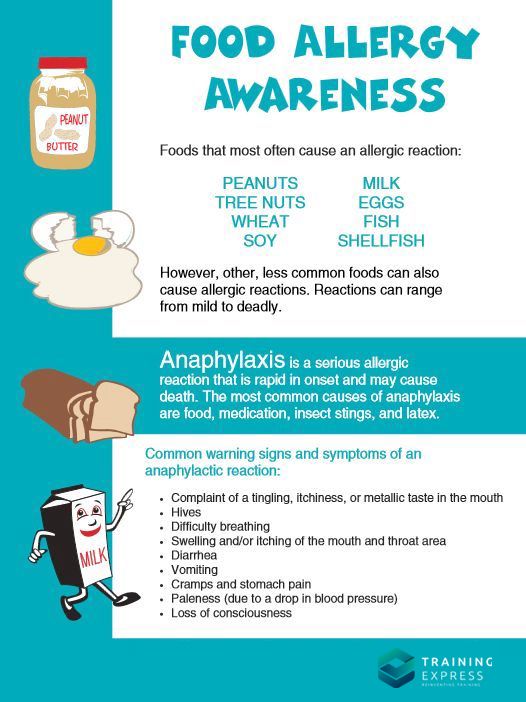 At the first sign of an allergy in a baby, a nursing mother should write down the names of the foods she consumed daily to determine what the child has an allergic reaction to. The list of products must be shown to the allergist.
At the first sign of an allergy in a baby, a nursing mother should write down the names of the foods she consumed daily to determine what the child has an allergic reaction to. The list of products must be shown to the allergist.
CMP (cow's milk protein) is usually the first complementary food protein that infants come into contact with. It can also cause allergies.
There are three groups of reactions to CMP:
- Skin rash. Swelling of the face.
- Gastrointestinal symptoms (diarrhea, vomiting).
Symptoms of atopic dermatitis may appear 1-5 days after the food test.
A well-adjusted diet for breastfeeding mothers has been shown to reduce the risk of developing allergies in babies.
Allergy Diet
Since breastfeeding allergies can be associated with errors in the nutrition of a nursing mother, it is necessary to completely eliminate foods that cause an allergic reaction in a baby from her diet.
The most common cause of allergies is:
- chicken meat,
- eggs,
- milk and dairy products,
- fish,
- seafood,
- peanuts,
- citrus,
- honey,
- nuts,
- red vegetables, fruits and berries.
Allergy diet is one of the main components of AD prevention and treatment. Drug therapy for allergic diseases in an infant should be prescribed by a doctor. Read about skin care for a child with atopic dermatitis on our website Dobrobut.com.
To avoid allergic reactions in your baby, you should follow some rules:
- introduce complementary foods only after consulting a pediatrician;
- mother should try any product literally drop by drop and after feeding the child, carefully monitor the reaction of his body;
- maintain optimal temperature and humidity in the children's room;
- choose hypoallergenic baby care products;
- wash children's things with special means.
By following these recommendations, you can reduce the risk of allergic diseases in your baby.
Do you want to get an online explanation from the doctor of the Dobrobut MS?
Download our Google Play and App Store app
Our doctors
See all doctors 745
Our certificates
Certificate no. QIZ 804 468 C1
Certificate no. QIZ 804 469 C1
Certificate No. QIZ 804 470 C1
Certificate no. QIZ 804 471 C1
View all certificates
Request a call back
Enter your phone number
Other articles
Conservative therapy and surgery in the treatment of purulent abscesses
Medicines and ointments for boils: effectiveness and use. Antibiotics for furunculosis: in what cases should they be taken and why. Doctors' recommendations.
Endoscopy of the nasopharynx in children - features of the procedure, indications
What is endoscopy of the nasopharynx in a child, indications for its implementation. Preparation for endoscopy, features and methods of its implementation. Where to make an endoscopy for a child in Kyiv
Shock wave therapy - what it is, indications and contraindications
The essence of the method of treatment with shock wave therapy. How acoustic waves act on the body, their effectiveness. Indications and contraindications for shock wave therapy.
X-ray diagnostics - advantages of the procedure
What is x-ray diagnostics. When is X-ray performed? Features and benefits of X-ray diagnostic procedure.

